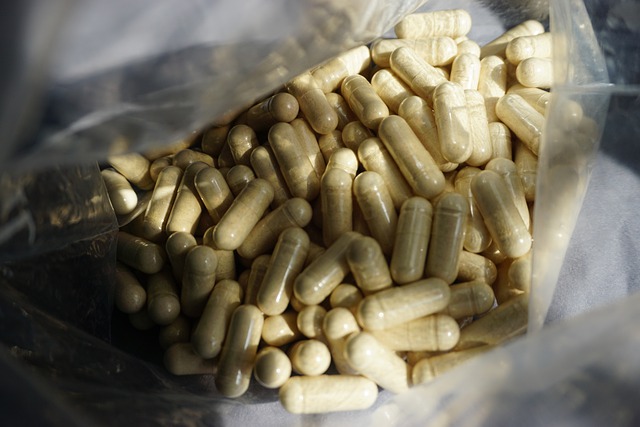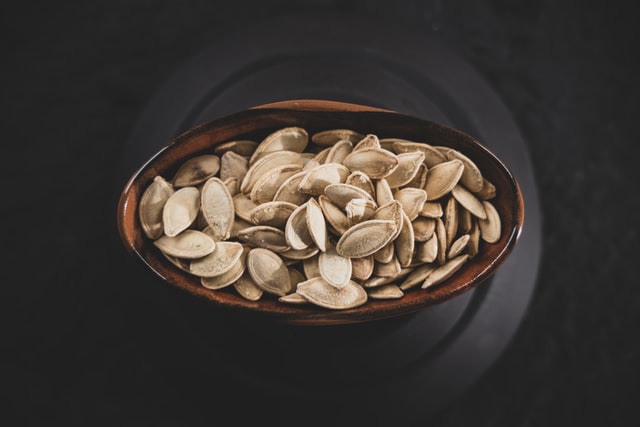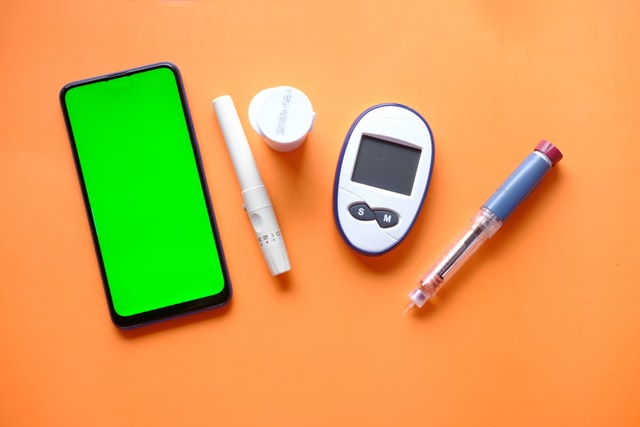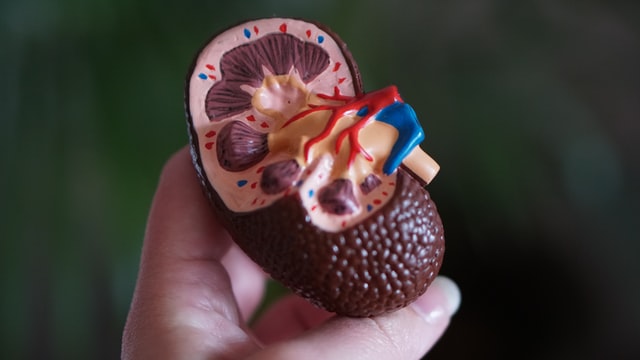
Zinc is one of the micronutrients necessary for the body to function correctly. Micronutrients are components whose daily requirement is less than 100 mg. Although the recommended daily dose of zinc is not high, a deficiency of this element can lead to severe consequences for our health.
Contents
The daily recommended dose of zinc is about 8-11 mg per day, with the exact dosage depending on age and gender.
Properties of zinc

The importance of zinc for humans is evidenced by the enormity of its functions. Both deficiency and excess of this element can be dangerous. Zinc is a component of many enzymes or is their activator - affects the synthesis of DNA, RNA, and hormones and is involved in the metabolism of proteins, carbohydrates, and fats - so a zinc deficiency can lead to disorders of critical physiological processes.
It is a microelement necessary for average growth and development - it has a beneficial effect on the immune, nervous, circulatory, and skeletal systems. It influences bone mineralization and the functioning of internal organs, such as the pancreas, thus being responsible for correct insulin levels. It strengthens the immune system, protects against cold and flu, supports the treatment of schizophrenia and depression, and regulates blood pressure.
In addition, zinc improves the condition of hair, skin, and nails, accelerates wound healing, supports the treatment of acne and vision, and as an antioxidant, zinc protects against free radicals. In men, zinc is involved in spermatogenesis (responsible for the correct quantity and quality of sperm). It protects against prostate diseases, while it is responsible for regulating the menstrual cycle in women.
Food sources of zinc

Good sources of zinc include meat, cream cheese, pulses, buckwheat, nuts, pumpkin seeds, sunflower seeds, and whole-grain cereals. Fish, oysters, eggs, and rice contain slightly less zinc. Zinc assimilability, or availability to the body, ranges from 15% to 60% higher than animal products. The lower bioavailability of plant products is due to the presence of phytates (in cereal products), fiber, and oxalates, which form compounds with zinc that are difficult to absorb.
Other ingredients impair zinc absorption: copper, calcium, non-haem iron (contained in plant products), and alcohol. Zinc assimilability, or availability to the body, varies from 15% to 60% and is higher than animal products. Zinc assimilability, or availability to the body, ranges from 15% to 60% higher than animal products.
- Vegetables (tomato, parsley, cabbage, lettuce, and legumes)
- Rice and seeds (wild rice, pumpkin, wheat germ, quinoa)
- Mushrooms (chanterelles, mushrooms, shiitake, and oyster mushrooms)
- Seafood and meat
The lower bioavailability of plant products is due to the presence of phytates (in cereal products), fiber, and oxalates, which form compounds with zinc that are difficult to absorb. Other components impair zinc absorption: copper, calcium, non-haem iron (contained in plant products), and alcohol.
Zinc - its importance in the human body

Zinc is essential for the functioning of all living organisms and is involved in numerous biochemical pathways in human cells. The zinc content of the human body is 2-3 g of zinc, with approximately 57% and 29% of the total body zinc found in skeletal muscle and bone, respectively.
The heart and blood plasma contain 0.4% and 0.1% of zinc, respectively. Low dietary intake, decreased absorption, or increased loss of zinc can lead to zinc deficiency.
Zinc versus diabetes

It has been shown that regular intake of this mineral helps to achieve lower fasting and postprandial blood glucose values and reduces the concentration of the so-called glycated hemoglobin - a key indicator for the diagnosis of diabetes. What's more, zinc can also contribute to reducing some indicators of inflammation, which also has an impact on the development of this chronic disease.
Zinc plays a vital role in maintaining normal blood glucose levels and is an essential component that stimulates insulin secretion and increases insulin sensitivity. Insulin secretion is the responsibility of cells in the pancreas called b cells, where zinc is stored. When combined with insulin, it forms complexes, called hexameters, consisting of six insulin molecules and two zinc ions.
After a meal is eaten, blood glucose levels rise, causing b cells to be stimulated and secrete insulin.
A fascinating study concerns drinking water. Animal studies indicate that zinc deficiency causes decreased insulin secretion and activity, resulting in less glucose uptake and greater glucose tolerance, and may cause liver damage associated with β-cell destruction. They show that areas with low zinc content in groundwater have a higher risk of diabetes.
Fasting glucose and zinc:

- The effect of zinc on fasting glycemia was reported in 29 interventions, including 20 studies that used zinc as a single factor and 9 studies that used zinc with an additional supplement.
- The analysis revealed a significant reduction in fasting blood glucose values when zinc supplementation was the only factor. The weighted mean difference was -13.26 mg/dL compared to the control group.
- Furthermore, there was a 16.42 mg/dL reduction in fasting blood glucose in the group of subjects taking zinc with other supplements.
- Overall, the meta-analysis concluded that zinc intake contributes to lower fasting glucose by 14.15 mg/dL.
Postprandial glycemia versus zinc
- The effect of zinc on glycemia 2 hours after a meal was reported in 7 interventions, including 6 studies that used zinc as a single agent and 1 study that used zinc with an additional supplement.
- Zinc administration significantly reduced postprandial glycemia when zinc was administered alone by 39.87 mg / dL.
- When zinc was used with an additional supplement, there was an average reduction in postprandial glycemia of 19.70 mg / dL.
- Zinc supplementation was found to significantly improve glycemic control. It was shown to lead to a statistically significant decrease in fasting glucose (-14.15 mg/dl) and a reduction of postprandial glycemia (-36.85 mg/dl).
- The laboratory equivalent of long-term glycemic control is the glycated hemoglobin assay - again, there was a benefit from zinc supplementation, as it leads to a -0.55% decrease in glycated hemoglobin. In addition to high glycemia, one of the cardiovascular risk factors is an excessively high concentration of C-reactive protein - taking zinc led to a decrease in CRP levels by -1.31 mg/dL.
Causes of zinc deficiency

Zinc deficiency is most often caused by a poor diet, so eating a healthy, balanced diet is very important. Zinc deficiency may also be related to its impaired absorption caused by gastrointestinal tract diseases (celiac disease, inflammatory bowel disease, prolonged diarrhea, pancreatitis).
It is also seen in higher amounts in people who need it, including athletes, pregnant women, the elderly, people with damaged kidneys, weakened immunity, or extensive burns.
Symptoms of zinc deficiency

Common symptoms indicative of zinc deficiency include hair loss, skin deterioration, and white spots on the nails. Nails become more brittle and fragile, hair weakens, and skin is dry and prone to acne lesions. It may be accompanied by stunted growth and delayed puberty, lack of appetite, taste and smell disorders, and impaired wound healing. Long-term zinc deficiency causes a decrease in immunity, increases the risk of infections, and accelerates the aging process.
Symptoms of excess zinc

If the only source of zinc is our food, then we are not at risk of zinc overdose. Such a risk arises with the long-term use of zinc supplements. Long-term elevated zinc levels can cause a metallic taste in the mouth, dizziness, hallucinations, and excessive sweating. The classic symptoms of zinc excess are abdominal pain, nausea, vomiting, intestinal irritation, headache, weakness, and diarrhea.
Note that zinc reduces copper absorption and can lead to copper deficiency, which risks anemia, elevated LDL (bad cholesterol), and reduced HDL (good cholesterol) levels.
Keep in mind that not only a zinc deficiency is dangerous for our body - an excess of zinc can also be very harmful. However, the good news is that zinc overdose is very rare because its absorption is hormonally regulated and varies depending on whether our body currently needs additional zinc resources. Therefore, an overdose of zinc mainly occurs when zinc is taken in excessive doses in the form of food supplements.
Zinc in conflict with copper

Because zinc is essential for maintaining normal blood glucose levels, we are increasingly asking whether to recommend zinc supplementation for people with diabetes or those at risk? There have been numerous studies in this area in recent years. While many of them confirm the benefits for diabetic patients taking zinc supplements, there is a need for further research in this area.
Especially since a deficiency and an excessive intake of zinc can be dangerous to our health. The systematic intake of zinc supplements reduces copper availability and causes copper deficiency. Copper deficiency, in turn, can cause anemia, increased levels of total cholesterol and the so-called bad LDL cholesterol, and decreased levels of the so-called good HDL cholesterol. Therefore, supplementation should be made after consultation with a doctor.





